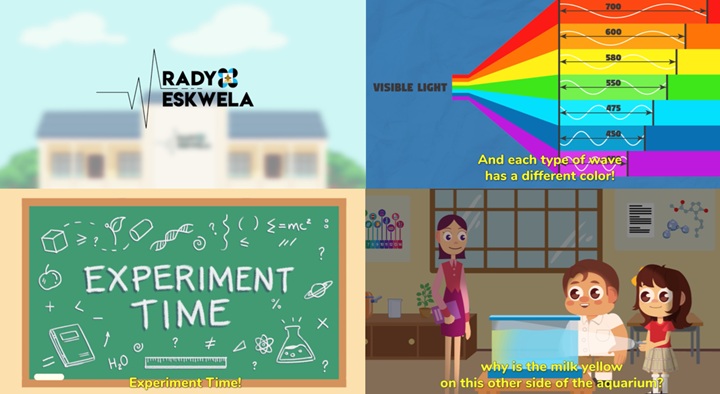
Elementary students struggling with math and science lessons now have a more engaging way to learn—through RadyoEskwela sa Siyensya, an animated series launched by the Department of Science and Technology – Science Education Institute (DOST-SEI).
As distance learning becomes more widespread, creative approaches to teaching math and science have become essential to overcoming its challenges. One such approach is story-based lesson delivery, which helps make complex concepts more relatable and easier to understand.
RadyoEskwela sa Siyensya is one of DOST-SEI’s latest learning resources for students, teachers, and parents. What began as a series of radio lessons has now evolved into an animated series—designed for early, primary, and intermediate grade levels —available for free on nulab’s Facebook page.
Students can now enjoy learning with Kaikai and Bart—the animated lead characters of RadyoEskwela—as they go on exciting adventures while guiding young learners through fun lessons and science experiments.
Currently, there are 15 episodes covering a wide range of fundamental concepts in both math and science. Math topics include financial literacy, rate and ratio, and area and volume. Science episodes explore both physical and life sciences—such as plant propagation, sea sponge, chemistry colors, vaccines, vitamins and minerals—as well as earth and physical phenomena like density, solar eclipse, earthquake, volcanoes.
The series also features Filipino-themed episodes, including Bakit Blue ang Langit?, Gagambahay, and Kiwot Bees, which creatively blend science with local culture.
Diversifying learning delivery tools is part of DOST-SEI’s commitment to making STEM education more accessible for every Filipino. By transitioning from radio to animation, learners may now have a more immersive learning experience whether they be at home or at school.
“RadyoEskwela embodies our mission to make science and math education inclusive, engaging, and accessible to all Filipino learners,” said DOST-SEI Director Dr. Jayeel S. Cornelio. “With this animated series, we are not only expanding its reach but also making learning more interactive and exciting for young Filipinos. We hope this initiative sparks interest among students to further explore STEM.”
More learner support programs
In addition to RadyoEskwela for elementary students, high school students can also benefit from TuklaSiyensya—a program that introduces complex STEM concepts in a fun, interactive way, while inspiring interest in STEM careers.
The first season of TuklaSiyensya featured fifteen episodes, showcasing lessons and demonstrations by scientist-facilitators, animation explainers, and post-viewing activities to engage students.
Similar to RadyoEskwela, the TuklaSiyensya animated series are available for free on nulab’s Facebook page, ensuring easy access for students, teachers, and parents.
As demand for STEM education continues to grow, these learner support programs are essential in making education more inclusive and engaging. Schools, educators, and parents are encouraged to take advantage of these free resources to enhance science and math instruction.

